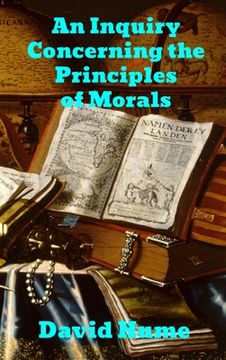Synopsis "An Enquiry Concerning the Principles of Morals"
An Enquiry Concerning the Principles of Morals (EPM) is a book by Scottish enlightenment philosopher David Hume. In it, Hume argues (among other things) that the foundations of morals lie with sentiment, not reason.An Enquiry Concerning the Principles of Morals is the enquiry subsequent to the Enquiry Concerning Human Understanding (EHU). Thus, it is often referred to as "the second Enquiry". It was originally published in 1751, three years after the first Enquiry.[1] Hume first discusses ethics in A Treatise of Human Nature (in Book 3 - "Of Morals"). He later extracted and expounded upon the ideas he proposed there in his second Enquiry. In his short autobiographical work, My Own Life (1776), Hume states that his second Enquiry is "of all my writings, historical, philosophical, or literary, incomparably the best."Hume's approach in the second Enquiry is largely an empirical one. Instead of beginning his moral inquiry with questions of how morality ought to operate, he purports to investigate primarily how we actually do make moral judgments. As Hume puts it: As this is a question of fact, not of abstract science, we can only expect success, by following the experimental method, and deducing general maxims from a comparison of particular instances. Furthermore, Hume purports to provide a naturalistic account of morality, at least to the extent that it is something that is common among the human species. He writes: The final sentence, it is probable, which pronounces characters and actions amiable or odious, praise-worthy or blameable... depends on some internal sense or feeling, which nature has made universal in the whole species. But, whether in the end Hume purports to provide a normative ethical theory, rather than a merely descriptive theory of moral psychology, is a contentious issue among Hume scholars.

